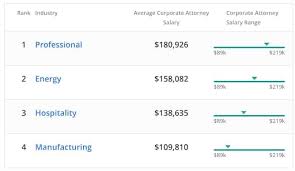
After law school, most new lawyers begin their careers as clerks for judges in local, state and federal courts. This provides an invaluable opportunity to gain valuable legal experience while strengthening analytical abilities.
Lawyers work long hours and face busy schedules, particularly if they specialize in complex cases. To reduce stress levels and alleviate strain, lawyers need to find healthy coping mechanisms outside of work that they can rely on as healthy ways of relieving anxiety.
Courtrooms
Courtrooms are where law comes to life. Lawyers working within government serve as legal advocates in cases affecting communities across the globe – prosecuting crimes or handling civil matters related to family, business, real estate or trusts and estates. Their clients include prosecuting offices; public defenders; administrative, executive or legislative staff as well as military lawyers.
After graduating law school, newly minted lawyers spend much of their time helping experienced attorneys with the research and preparation required for trial presentations before juries. Once they’ve gained enough experience they may take on their own cases.
Every courtroom features a judge or referee in black robe and using a gavel to call proceedings to order. They also maintain a chambers where they meet with counsel for off-the-record conversations off the record, although traversing between bench and counsel tables without permission is considered very rude behavior.
Law Firms
Law firms boast a distinctive structure composed of partners, associate attorneys and non-attorney staff working as interdependent teams that contribute to overall firm success by meeting client requests and producing accurate invoices.
Large firms may employ up to 3000 employees across various practice groups, and their attorneys often take on complex cases with high stakes stakes matters. Many large firms utilize an “up or out” system where associates either become partners after eight to 10 years or they’re asked to leave the firm altogether.
Attorneys receive both a salary and profit sharing bonuses depending on their equity in a firm. Most attorneys choose small or midsize law firms that provide more personalized client service and advancement opportunities; others work at boutique firms specializing in one specific legal niche that allow them to build expertise within that area and grow a loyal clientele.
Government
Most people rarely give government lawyers, or their legal services, much thought unless they witness criminal trials or political disputes in Washington. Yet many law school graduates choose government service as their first career option after earning their licenses as attorneys; many find stability with steady employment without billable hours in this environment.
Lawyers working for government can also find more flexible working hours and locations when taking on public service positions; city and state agencies and departments often hire lawyers from different states (only 15% of federal jobs are based in Washington D.C). Furthermore, some positions provide loan repayment assistance.
Initial positions within government may include fellowships and honors programs that enable an attorney to gain experience before moving onto more permanent in-house roles. A private firm route may also be feasible as some municipalities outsource legal work contracts directly to private firms.
Public-Interest
Public interest lawyers do more than represent victims of economic and political power. They provide assistance in various fields for those unable to afford legal services on their own – survivors of domestic violence, children with disabilities or family law issues, people facing eviction/homelessness/fair wages issues as well as immigrants in deportation proceedings are just some examples of whom these dedicated workers serve.
Public-interest lawyers are sought out by non-profit organizations, the federal government, state and local governments, public defender or prosecutor offices, as well as in in-house counsel positions such as executive directors, legislative directors, writers/editors/editorial assistants or development (fundraising) directors. They may even serve as staff members.
Students interested in public interest careers should visit PSLaw Net’s website link for additional information on various career options. Furthermore, several large law firms allow one or two summer interns from each firm to spend part of their internship experience working at non-profit organizations alongside law firms.


